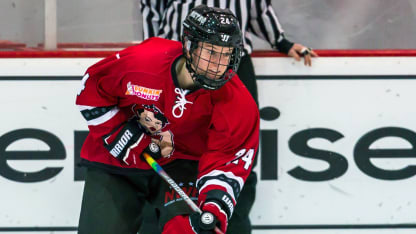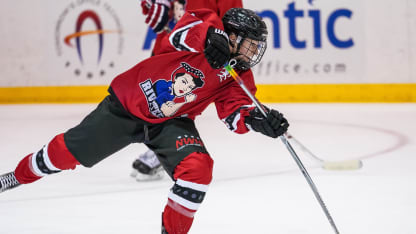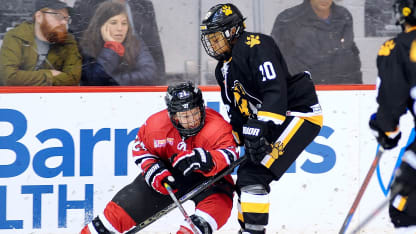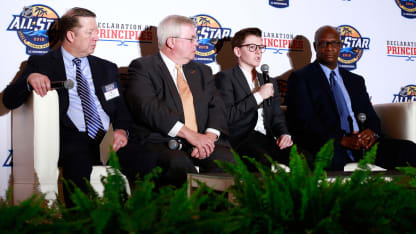(Photo courtesy of Matt Raney/NWHL)
Browne came out publicly as transgender in 2016 in an article on ESPN.com, the impact of which has changed Browne's life and purpose and has been a game-changer for a portion of the LGBTQ community.
"I think what changed the most was visibility," Browne said. "There is now another minority represented. Everybody talks about the LGBTQ spectrum and that is very prevalent in women's hockey, the lesbian aspect. It's not a new thing. But what is new is being transgender. I think just being visible and knocking down that first door was monumental."
Browne's impact now is that he is no longer the only openly transgender individual in professional hockey. Jessica Platt became the first openly transgender woman playing in the Canadian Women's Hockey League this season.
"And now there's a lot of trans youth that have come out too," Browne said. "Having the first person do that, break down that barrier, has really opened the floodgates."
Browne said he has felt liberated since coming out.
"I didn't realize that it was weighing me down, but being able to hear Harrison and male pronouns at the rink has eliminated this thought, 'I just scored, I'm really happy that I just scored, but now I'm going to have to hear the wrong name on the announcement,' " Browne said. "Now I don't have that thought. Now I can just go out and play freely."





















